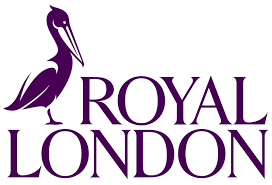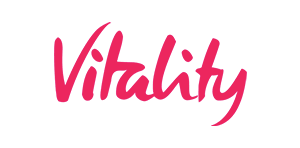Discover the Benefits of Life Insurance
Complete our Swift 30-second form to acquire a tailor-made Life Insurance Quote
Effortlessly compare quotes and discover the cover that perfectly aligns with your individual needs.
Protecting Your Loved Ones:
Life is unpredictable, and ensuring the financial security of your family is a top priority. Life Insurance policies offer a safety net, providing financial support to your loved ones in the event of your passing.
Safeguarding Against Critical Illness:
In today’s fast-paced world, the risk of critical illnesses is on the rise. Critical Illness Insurance provides a crucial financial buffer, covering medical expenses and allowing you to focus on recovery without the added stress of financial burdens.
Secure your family’s future and protect your home with our customisable life insurance options. Whether you prefer the flexibility of term cover, or the lifelong assurance of whole life Insurance, we offer solutions tailored to your needs.


Understanding Life Insurance
Life insurance is a straightforward concept: you pay a monthly fee, and in the unfortunate event of your passing, a lump sum payout is provided to your beneficiaries. This financial safety net eliminates concerns about covering your mortgage, settling bills, handling funeral expenses, and managing everyday living costs for your family.
Is Life Insurance Necessary?
If there are people who depend on you, we believe life insurance is essential. Consider whether your loved ones could handle financial responsibilities like mortgage payments, bills, funeral expenses, and daily living costs if you were no longer there. Rest assured, we’ve got you covered.
Understanding the Costs
In the United Kingdom, the average cost of a life insurance policy is around £15.85 per month. Factors influencing your premium include the desired payout amount, policy duration, your age, pre-existing medical conditions, and smoking status.
Reliable Payouts
Most life insurance providers boast high payout rates, with an average of 98.3%* of claims resulting in a successful payout in the UK. Partnering only with market leaders, we ensure you have reliable cover.
No Worries about Exclusions
Leave the fine print to us. Our expert advisers meticulously examine exclusions and conditions, guaranteeing you get the coverage you want without any hidden surprises.
Quick Payouts
Life insurance claims are typically processed quickly, taking about a month to payout if the policy is in a trust. Initiating a claim is straightforward with the submission of the policy holder’s death certificate.
Explore Life Insurance Options
Choose the right coverage for your needs from our main categories:
1: Term-Based Life Insurance
Level term and decreasing term options
Ideal for covering mortgages, living expenses, income replacement, or leaving an inheritance
2: Whole of Life Insurance
Lasts a lifetime with a guaranteed payout
3: Family Income Benefit
Provides tax-free monthly income to loved ones after your passing
Comprehensive Coverage
Life insurance policies generally cover all types of death, whether due to accidents or natural causes. Specific timeframes may apply, such as waiting periods for certain claims.
Living Beyond Your Policy
For term-based life insurance, living beyond the policy duration won’t result in a payout. Whole of life insurance and over 50’s plans are designed to last a lifetime.
Consider Multiple Policies
Couples can benefit from individual policies tailored to each partner’s needs. Joint policies have considerations for divorce, and it’s essential to assess options based on individual circumstances.
Tailor Coverage for Each Partner
While a joint policy may seem cost-effective, considering each partner’s life cover needs separately provides a more personalized and effective solution. This approach is especially relevant for couples of different ages and health states.
Types of Life Insurance
Finding the right one out of many types of insurance could be very tricky. Here are the different types of life insurance suited for different needs and eligibilities:
Level Term Life Insurance
What is level term life insurance? A Level Term life insurance is the simplest of all the life products. An insurer is paid a monthly amount (the premium) to ensure that an ‘agreed amount’ (the benefit) is paid to the next of kin, loved ones or ‘estate’ should the person insured die within the agreed number of years that the insurance is in place, called the Term.
Level Term life insurance is commonly used to pay off an interest-only mortgage, as not repaying the capital on an interest-only mortgage means the outstanding debt remains the same over the life of the mortgage, and therefore so should the amount of life cover.
Decreasing Term Life Insurance
With Decreasing Term life insurance an ‘agreed amount’ (benefit) is chosen which reduces over time. An insurer is paid a monthly amount (the premium) to ensure that the ‘decreasing amount’ is paid to your next of kin, loved ones or ‘estate’ should the person insured die within the agreed number of years that the insurance is in place, called the Term.
The amount you pay is fixed throughout the life of the insurance (policy), and the premium level is lower than that of Level Term Insurance because of the decreasing benefit.
Decreasing life insurance is commonly used to pay off a repayment mortgage, taken out for the same number of years as the mortgage and reducing in line with the outstanding mortgage amount. The benefit should reduce slower than the mortgage debt, ensuring repayment of the mortgage in full. However, there is no guarantee that the level of cover will match the outstanding debt upon a claim.
Increasing Term Life Insurance
With Increasing Term life insurance an ‘agreed amount’ (benefit) is chosen which increases over time. An insurer is paid a monthly amount (the premium) to ensure that the ‘increasing amount’ is paid to your next of kin, loved ones or ‘estate’ should the person insured die within the agreed number of years that the insurance is in place, called the Term.
The ‘agreed amount’ will rise each year by an agreed rate, normally the Retail Price Index (RPI) or the Consumer Price Index (CPI). This is called Indexation. As your cover increases so does your premium.
The benefit of selecting indexation is you are protecting the purchasing power of your selected benefit because as time goes by, it’s expected that the cost of living will go up – it’s what’s known as inflation.
Whole-of-Life Insurance
Whole-of-life insurance is an ongoing insurance. An insurer is paid a monthly amount (the premium) to ensure that an ‘agreed amount’ (the benefit) is paid to the next of kin, loved ones or ‘estate’ when the person insured dies.
As it’s guaranteed that everyone dies at some point, and so providing the premiums have been paid, the policy is certain to pay out.
This insurance is more expensive than Term Life Insurance, as they only pay out if you die within a certain timeframe, rather than when you die.
Whole-of-life insurance policies are commonly used to pay inheritance tax allowing more of an estate is passed to the beneficiaries. To ensure the proceeds of the life insurance policy are not included in an estate, though, the policy must be written in trust.
Family Income Benefit Life Insurance
With Family Income Benefit life insurance an insurer is paid a monthly amount (the premium) to ensure that a regular income (the benefit) is paid to the family should the person insured die within the agreed number of years that the insurance is in place, called the Term.
The benefit of Family Income Benefit life insurance is that you can base it on your actual outgoings making it easier to determine how much you need. For example, if you take home £2,000 a month, you can arrange for the same amount to be paid out to your family if you die.
It also removes any decision-making by the beneficiaries as to an investment plan to manage any residual lump sum after immediate debts and other obligations have been made.
Over 50s Life Insurance
An Over 50s life insurance policy is an ongoing insurance that pays out when you die, whenever that is. An amount to pay each month is chosen (the premium) which, along with the person to be insured’s current age, determines the lump sum that will be paid upon their death. The premiums are guaranteed never to rise.
Acceptance by the insured is guaranteed for an Over 50s life insurance policy regardless of the state of health of the person the insurance is for. However, there is an initial period of one to two years depending on the insurer when the pay-out will only be a percentage of the total premiums paid to date – again this varies from insurer to insurer.
Over-50s life insurance policies are commonly used for people who want to be sure they leave enough money to pay for their funeral, meaning that their partner or relatives won’t be left out of pocket.
Joint Life Insurance
If you’re a couple thinking of taking out life insurance for both of you then a joint life policy rather than two individual ones is an option as the premium paid on a joint policy is likely to be less, but not significantly, than the amount you’d spend on two separate life insurance policies. If, however, you have dependents then the additional premium cost for two policies might be worth considering as your dependents would benefit from a potential double payout should you both die prematurely, either together or one after the other. Also, if the relationship should change later and it’s not possible to arrange to continue paying the premiums then a joint policy may need to be cancelled. If individual life insurance is then required your age and, perhaps, state of health may make this more expensive than if they’d earlier arranged a single life rather than a joint life policy.
Some joint life insurance policies only pay out after the second death which means the surviving partner would not receive a pay-out.
Life Insurance with Critical Illness
Life insurance with critical illness cover offers additional financial support if you survive a serious illness but need to make lifestyle changes. Ultimately, it’s up to you how you spend the lump sum.
Low Start Life Insurance
Low Start life insurance is where the premiums are low when you start your insurance rising each year at a fixed rate. The increases can be opted out of, and in some cases switched to level payments at any time, which may reduce the amount of benefit you receive. The cost over the whole term may be higher than a level policy but can help you afford the cover they need until they’re in a stronger financial position. Low Start life insurance policies are commonly used by first-time buyers who have a limited budget right now but a fixed amount to cover, their mortgage.
Life Insurance Options
As with all things the more options you choose the higher the price. Life Insurance is no different and different insurers load the options differently. It is therefore important to determine what you need and what you would like so we can find out what is the best Life Insurance policy available to you in the marketplace. Below are some of those options.
Guaranteed Premiums
Guaranteed premiums would suggest that what you pay stays the same throughout the policy term unless you increase the required income amount. For some policies this is true, you pay the same amount month after month until the policy ends. For others its guaranteed to increase based on a rate table which means the price you pay in the future for each £1 is guaranteed to go up each year at the rate set out in the guaranteed rate table sent with your policy. You can, therefore, calculate what your premiums will be in the future.
Reviewable Premiums
If your premium is not guaranteed, then the premiums can change each year due to age or changes to your health. Reviewable policies usually start cheaper than guaranteed policies, but they may end up being more expensive.
Level or Indexed
‘Level’ means that the amount you receive will remain the same throughout the time you have the insurance regardless of whether your income or expenditure increases. Alternatively, the amount you receive can increase each year in line with inflation using either the retail price index or the consumer price index. With some insurers this can be declined on an annual basis.
Waiver of Premium
If Waiver of Premium is selected, then when you begin receiving an income from the insurance policy the premiums no longer need to be paid until you return to work or your selected pay-out period is reached.
Renewable Term
If added to a Term Life Insurance policy cover can be extended at the end of the original term for a set period, possibly without having to provide additional medical information.
Special Terms
Pre-existing medical conditions may be covered by some insurers but for others they won’t be. There are also exclusions, different again by provider, and in most cases alcohol or drug abuse related deaths will void the policy.
Important Lifestyle Reviews
If cover is provided on non-standard terms or charged smoker rates, and you change your lifestyle in a way that you think reduces the likelihood of a claim, some polices can be reviewed mid-term, for example giving up smoking.
Convertible Term
Allows the conversion to a Whole-of-Life policy without having to provide any further medical information. Premiums for this type of policy are higher than for conventional term insurance policies, and once the policy converts, they are likely to increase.
Cover Increase options
The ability to change cover often without further medical information if your situation changes. Policies vary but some examples are: marriage, divorce, increased mortgage amount, birth or adoption of a child, salary increase.
Accidental Death Benefit
Accidental Death Benefit will pay out if you die because of an accident while your application is being underwritten.
Terminal Illness Benefit
Pays out early if you are diagnosed with less than 12 months to live.
Children’s Critical Illness Cover
Some policies include paying out an additional lump sum if any of your children are diagnosed with a critical illness or die during the policy term.
Child Accident Hospitalisation Cover
With this cover a special payment is made if a child is admitted to hospital with physical injuries for a minimum number of consecutive days, immediately following an accident.
Writing the policy into Trust
It’s recommended that a Life Insurance policy is written into Trust then this money will not be added to your estate, and therefore any pay-out won’t be liable for inheritance tax (IHT).
Putting your relevant Life Insurance into Trust not only means any pay-out is excluded from your estate for IHT purposes, which means that your family will not have to worry about an Inheritance tax bill, it also means they will get the money much quicker as they can bypass probate, which can take several months.
Under current tax rules the IHT threshold is £325,000 for a single person or £650,000 for married couples and registered civil partners. IHT is charged at 40% on anything you leave over these amounts when you die, which means, with an average house price in the UK of £216,750 that million of homeowner’s risk leaving a tax bill for their loved ones when they die.
When a discretionary trust is set up, the insured will name all the people that may want to benefit from it in the future. They will also name the Trustees who will be the legal owners of the trust fund and responsible for distributing any pay-out or managing the trust fund if, for example, the beneficiaries are children and too young to manage themselves.
Discover the peace of mind that comes with our comprehensive life insurance options.
















